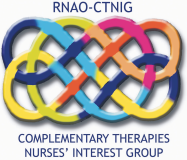Mark Your Calendar!
Please join us for the Virtual CTNIG AGM
Friday, December 10, 1900 - 2100
Includes a meditation, short business meeting and a presentation
Presentation - Self-Compassion Practice for Nursing Students and Nurses too!
Speaker - Jennifer Waite RN, Master’s candidate
Jennifer Waite, RN: Jennifer Waite is a registered nurse, currently working in the intensive care unit at Kingston Health Sciences Center and at the new Transitional Care Centre at Providence Care Hospital in Kingston, Ontario. Jennifer is also a candidate for a Master’s in Nursing Science at Queen’s University, with a thesis on the understanding and benefits of self-compassion in nursing students. Jennifer’s own experience completing her undergraduate program while navigating life challenges as a single mother of four, has shaped her passion and interest in studying how self-compassion can be used as a method of emotional support for nursing students, to promote their mental well-being and career longevity. Jennifer believes that nursing students are often left on their own to cope with the destructive emotions that surface from offering compassionate care to patients. Jennifer’s focus on self-compassion as an embodied attitude seeks to decrease nursing student’s perceived stress and self-judgment. Jennifer is embracing the art of storytelling by using a scholarly personal narrative methodology to describe how undergraduate nursing education shaped her understanding of self-compassion.
Self-Compassion Practice for Nursing Students and Nurses too! While nursing students must learn to offer compassion to others as part of the nursing practice core competencies, their ability to manage difficult emotions can be challenging, especially if they are experiencing chronic perceived stress. Nursing students try to cope, but common coping strategies are to avoid and escape, which are maladaptive for managing one’s mental and emotional health. A complementary practice shown to support healthcare workers mental health is self-compassion. Self-compassion practice has shown to significantly reduce healthcare professionals’ symptoms of burnout and perceived stress levels, as well as enhance their emotional well-being and foster their ability to offer compassionate care. Conceptualized by three components: mindfulness, self-kindness, and common humanity - self-compassion practice is an ‘in the moment practice’- an attitude that can be developed, which has demonstrated utility for nursing students.
ZOOM meeting details to follow
CTNIG Leadership Team

